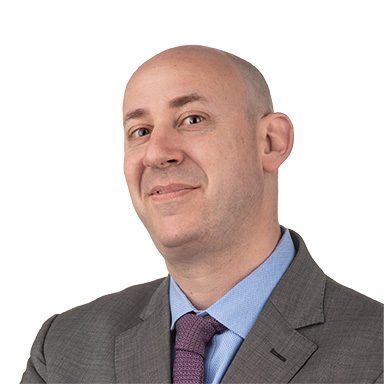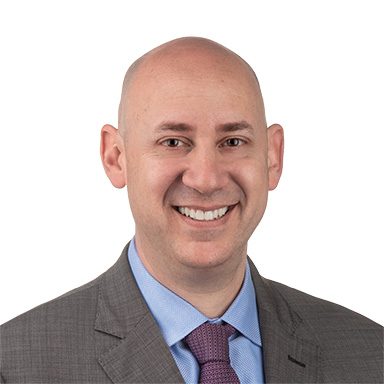A stronger recruiting strategy that includes relationships with patient support groups and clinical treatment centers can provide better access to difficult-to-reach patient populations. Being intentional about how you plan the logistics of your human factors and user research can mitigate risks to validity introduced by biases.
Back to team page
Elliot Segal
FP&A Director
Elliot is a highly analytical leader with experience in accounting, finance, and strategy spanning diverse industries. He is an active listener, relationship builder, and communicator collaborating with financial and non-financial audiences to convey details and big picture business strategies. He has an MBA with a focus on Strategy, Execution & Valuation from DePaul University.


Bold facts
![]() Learn more about
Learn more about

Something unique about you summed up in one sentence:

Your favorite city in the world is...and why?

In your spare time (or if you had spare time), you would absolutely do this:

Share your hobbies:

Favorite TV show:

What superpower would you most want?

What fictional family would you like to join?

What is your favorite way to give back to the community?
- Human factors testing for OTC drugs and non-prescription medical devices
- What the history of human factors tells us about the future of our industry
- Mastering the balance between moderation and facilitation in UX research
- The FDA's PCCP: A game changer for AI-enabled medical device software
- Essential leadership skills for navigating complex user research projects
- Navigating the latest guidance in China for medical device human factors research
- Beyond the product: UX for ecosystems
- Boost in-vehicle user satisfaction with UX research and a dual-track development approach
- Diversity in research and why it matters: Exploring Black maternal mortality rates
- How superior UX transforms automotive brand perception and loyalty
- How to build a mobile lab for in-car UX research
- Design for all: Elevate your product design to include all genders and sexualities
- Three steps to successful UX research on the road
- Integrating FDA's new cybersecurity guidance into medical device human factors engineering processes
- Three ways UX research supports accessible product design
- Unlocking the power of user-centric design for business success
- Human factors optimization: How to leverage HF researchers in your medtech team
- Enhancing medical device safety and effectiveness: Leveraging knowledge tasks in healthcare UX and human factors research
- 3 considerations for accessible in-car UX research sessions
- Integrating AI with care: FDA reveals focus areas for forthcoming guidance on AI products
- Harnessing UX research to empower children and enhance parental controls online
- Revolutionising women's health: The power of Femtech and inclusive design
- Follow this framework to ensure your SaMD conforms to HF standards post-release
- AI Governance: Safeguarding innovation in an evolving regulatory landscape
- Decoding the user experience of conversational AI
- GenAI at the inflection point: Navigating the third wave
- So you want to run a diary study: Five steps to successfully onboard participants
- The role of AI in transforming the car-buying experience
- The future of automotive infotainment: Connect the dots for an immersive experience
- The value of the daily fieldwork debrief: A critical piece of your UX research
- Context, accents, and privacy: Overcoming hurdles of AI translation tools in global UX research
- The role and challenges of speech technology in global UX research
- Generative AI in UX research: what are the risks and rewards?
- Lost in translation: Challenges second-language speakers face when using voice interfaces
- What medtech design teams need to know about AI regulations
- How to show up for your participants and colleagues this Pride Month and beyond
- Conducting research with kids? Considerations for running studies with adolescent participants
- Want to increase employee retention? Design your company around your employees
- Why employee experience should get the same attention as user experience
- Designing for accessibility? 6 considerations for a more inclusive user experience
- Not sure how to use AI tools in your UX research? Consider making it your sparring partner
- 3 crucial aspects of submitting a successful human factors engineering package to the FDA
- A voice for everyone: Embracing diversity in speech technology
- How collaboration builds value in medical device human factors research
- The UX of mental health: 5 considerations when designing a mental health app
- 4 make-or-break considerations for health IoT ecosystems
- 10 tips to better support a11y participants during user research
- 5 tips for remote UX research with the A11y community
- Six unique benefits of rolling research
- How can UX researchers support gender diversity and more inclusive design for all intended users?
- The secret communication weapon everybody forgets about in 2022
- Understanding user research regulations: how much do you know about participant privacy?
- Why and how your company should talk about pronouns
- Ten questions workforce leaders should be ready to tackle with the Omicron-fueled COVID case climb
- Why logistics are important: 4 considerations for planning global research
- Two tips for successfully preparing research materials for global studies
- How to prepare products for global research
- Four ways the pandemic has permanently changed UX research
- Support a company culture of self-advocacy with these four tips
- Improve medical device safety with these packaging design tips
- Moderating remote research sessions? 3 tips to help build rapport with participants
- 3 tips to successfully onboard in a remote environment
- Reflecting on an unprecedented year with mixed emotions
- Ageism and technology UX: Designing for seniors
- 5 tips to mitigate use-related risk for pre-filled syringes and other injection devices
- Working from home: Tips for designing your workspace from an ergonomics expert
- New Blog Series: Bold Insight and Orthogonal share insights about getting medical devices to market faster
- Rethinking experiences: UX and human factors research can help companies develop safe, contactless designs
- Remote UX research can reveal 5 key insights for auto manufacturers
- Will participants show for fieldwork?
- Webisode: Possible impact if in-person human factors research is not considered essential
- Now is the ideal time to improve the UX of your mobile app
- Human factors research in the times of COVID
- COVID-19: Using human factors and UX to make a positive impact
- Is FMEA inadequate for human factors analyses?
- Pros and cons of remote moderated testing: Considerations for ongoing research during COVID-19
- What we do matters: A Bold mission
- Be the student: 4 tips to be a better UX research moderator
- Care to share? UX considerations of the sharing economy for ridesharing, hospitality, and healthcare
- UX research reveals common concerns from HCPs about telehealth technology
- So, your recruit fell apart… now what?
- 7 insights from the 2019 HFES Health Care Symposium
- Is a product still usable if the user has to "get used to it?"
- 6 UX trends for 2019
- A Bold year to remember!
- Four things to keep in mind when conducting on-the-road UX research
- When building next gen fintech, start with research in Africa
- When it comes to voice print UX, what is our role as researchers?
- Is customer channel-hopping hiding UX problems?
- UX principles for robot design: Have we begun to baseline?
- AI benefits from GPU, not CPU advancements
- The critical component missing from AI technology
- Three things to improve acceptance of AI
- Recruiting methods and study logistics for human factors and user research
- Singularity and the potential impact on UX design principles
- Am I satisfied or stuck? The impact of ecosystems on household users
- UX and Brand: Delivering on the promise of experience strategy
- When designing an experience, are you really thinking about the customer first?
- UX project logistics: choosing the right vendors for project success
- Reclassifying diabetes: 3 implications for product design
- Designing your POS so it's not a POS
- FDA’s digital health precertification program emphasizes importance of post-market surveillance
- Confirmation Fatigue: Enough with the reminders already!
- 5 takeaways for human factors practitioners from the HFES Health Care Symposium FDA workshops
- Webisode: Global user research -- where to start
- Webisode: Global user research -- things to think about
- Webisode: Why invest in global user research?
- In-vehicle UX research: Here's one recommendation that hasn't changed in 10 years
- The future of fan engagement: How do you measure goosebumps?
- Designing for Voice: The next phase of UX design
- Just in time for the Super Bowl - A football metaphor for UX research and design
- The time for a better UX in digital therapeutics is now
Read our team’s latest bold insights
Singularity and the potential impact on UX design principles
If we are approaching a rapid technology shift as some experts predict, core UX design principles will have to be redefined to adapt to radically different interaction models.
Am I satisfied or stuck? The impact of ecosystems on household users
Manufacturers building an ecosystem of devices and services should design for both a separate, personalized experience and household or shared experience.
UX and Brand: Delivering on the promise of experience strategy
Bold Insight and The Office of Experience partner to deliver outstanding user experiences.